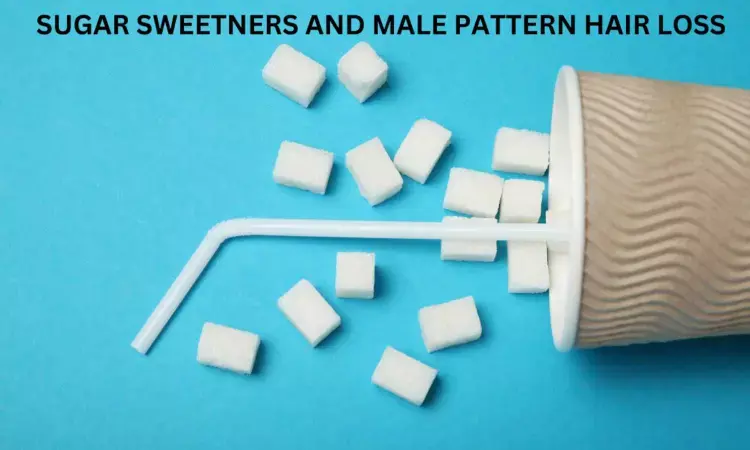- Home
- Medical news & Guidelines
- Anesthesiology
- Cardiology and CTVS
- Critical Care
- Dentistry
- Dermatology
- Diabetes and Endocrinology
- ENT
- Gastroenterology
- Medicine
- Nephrology
- Neurology
- Obstretics-Gynaecology
- Oncology
- Ophthalmology
- Orthopaedics
- Pediatrics-Neonatology
- Psychiatry
- Pulmonology
- Radiology
- Surgery
- Urology
- Laboratory Medicine
- Diet
- Nursing
- Paramedical
- Physiotherapy
- Health news
- Fact Check
- Bone Health Fact Check
- Brain Health Fact Check
- Cancer Related Fact Check
- Child Care Fact Check
- Dental and oral health fact check
- Diabetes and metabolic health fact check
- Diet and Nutrition Fact Check
- Eye and ENT Care Fact Check
- Fitness fact check
- Gut health fact check
- Heart health fact check
- Kidney health fact check
- Medical education fact check
- Men's health fact check
- Respiratory fact check
- Skin and hair care fact check
- Vaccine and Immunization fact check
- Women's health fact check
- AYUSH
- State News
- Andaman and Nicobar Islands
- Andhra Pradesh
- Arunachal Pradesh
- Assam
- Bihar
- Chandigarh
- Chattisgarh
- Dadra and Nagar Haveli
- Daman and Diu
- Delhi
- Goa
- Gujarat
- Haryana
- Himachal Pradesh
- Jammu & Kashmir
- Jharkhand
- Karnataka
- Kerala
- Ladakh
- Lakshadweep
- Madhya Pradesh
- Maharashtra
- Manipur
- Meghalaya
- Mizoram
- Nagaland
- Odisha
- Puducherry
- Punjab
- Rajasthan
- Sikkim
- Tamil Nadu
- Telangana
- Tripura
- Uttar Pradesh
- Uttrakhand
- West Bengal
- Medical Education
- Industry
Male pattern hair loss greatly linked with sugar sweetened beverages

Male pattern hair loss (MPHL), has become a global public health problem as its progressive and non-scarring form of hair loss, The incidence of MPHL continues to increase while the age of onset for MPHL continues to decrease.
Researchers performed this study to investigate the association between sugar-sweetened beverage (SSB) consumption and male pattern hair loss (MPHL) in young men. The study found that SSB consumption was greatly associated with hair loss. The study is published in Nutrients Journal.
The study was a cross-sectional study from January to April 2022 in mainland China. Young people aged 18–45 years (n = 1951) were recruited from 31 provinces in China.
They used a self-reported online survey for data collection and explored the associations between the amount/frequency of SSB consumption and MPHL by using a binary logistic regression model, with adjustments for sociodemographic, hair status, dietary intake, lifestyle, and psychological factors.
The key findings of the study are
• In China, where this was conducted, reported individuals aged 13 to 29 years represent the largest population of SSB consumers at 22.38%.
• Among the 1028 participants (27.8 ± 7.2 years) found 42.4% without male pattern hair loss and 57.6% with male pattern hair loss in the final analysis.
• The questionnaire showed that those with male pattern hair loss consumed an average of 4,293 mL of sugary drinks — nearly twice the 2,513 mL consumed by those without male pattern hair loss (P < .001).
• The male pattern hair loss group also reported drinking SSBs at a much higher frequency of more than seven times a week compared with the group without male pattern hair loss (68.8% vs. 31.2%; P < .001).
• Compared with those that never drank SSBs, frequent SSBs drinkers were 3.36 times more likely to have male pattern hair loss (95% CI, 2.22-5.09).
Researchers concluded that the high SSB consumption is associated with a higher risk of MPHL and recommended more support to decrease SSB consumption among young people to minimize negative health outcomes.
Reference: Shi, X.; Tuan, H.; Na, X.; Yang, H.; Yang, Y.; Zhang, Y.; Xi, M.; Tan, Y.; Yang, C.; Zhang, J.; et al. The Association between Sugar-Sweetened Beverages and Male Pattern Hair Loss in Young Men. Nutrients 2023, 15, 214. https://doi.org/10.3390/nu15010214
MSc. Neuroscience
Niveditha Subramani a MSc. Neuroscience (Faculty of Medicine) graduate from University of Madras, Chennai. Ambitious in Neuro research having worked in motor diseases and neuron apoptosis is interested in more of new upcoming research and their advancement in field of medicine. She has an engrossed skill towards writing and her roles at Medical dialogue include Sr. Content writer. Her news covers new discoveries and updates in field of medicine. She can be reached at editorial@medicaldialogues.in
Dr Kamal Kant Kohli-MBBS, DTCD- a chest specialist with more than 30 years of practice and a flair for writing clinical articles, Dr Kamal Kant Kohli joined Medical Dialogues as a Chief Editor of Medical News. Besides writing articles, as an editor, he proofreads and verifies all the medical content published on Medical Dialogues including those coming from journals, studies,medical conferences,guidelines etc. Email: drkohli@medicaldialogues.in. Contact no. 011-43720751


